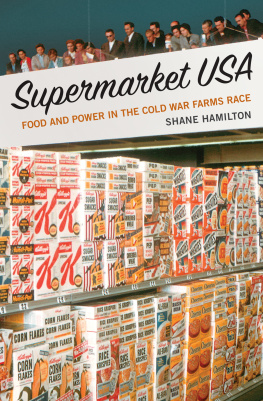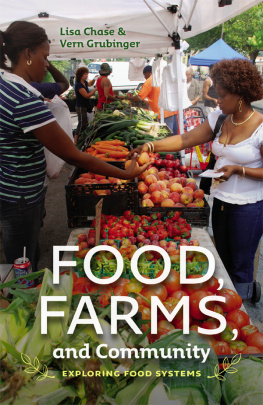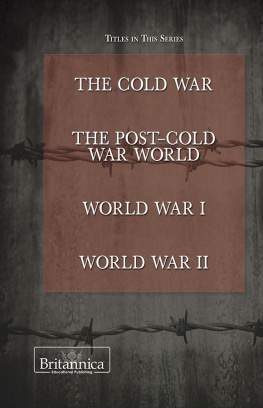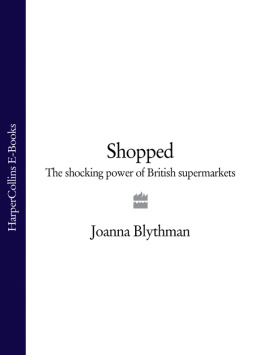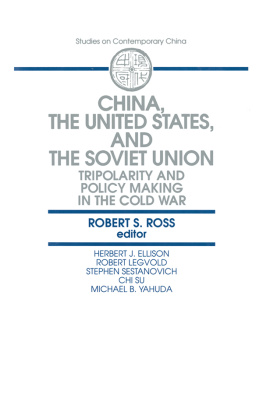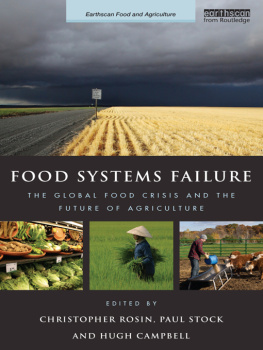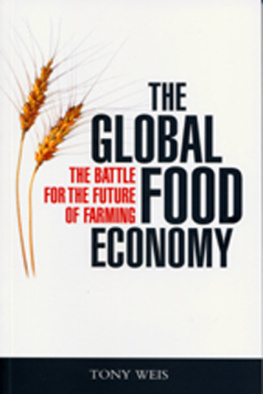Supermarket USA

Copyright 2018 by Shane Hamilton.
All rights reserved.
This book may not be reproduced, in whole or in part, including illustrations, in any form (beyond that copying permitted by Sections 107 and 108 of the U.S. Copyright Law and except by reviewers for the public press), without written permission from the publishers.
Yale University Press books may be purchased in quantity for educational, business, or promotional use. For information, please e-mail (U.K. office).
Set in Gotham and Adobe Garamond types by IDS Infotech Ltd., Chandigarh, India.
Printed in the United States of America.
Library of Congress Control Number: 2017963802
ISBN 978-0-300-23269-1 (hardcover : alk. paper)
A catalogue record for this book is available from the British Library.
This paper meets the requirements of ANSI/NISO Z39.48-1992 (Permanence of Paper).
10 9 8 7 6 5 4 3 2 1
For my family
Contents
Acknowledgments
The debts incurred in researching and writing this book are many. I am particularly grateful for research funding provided by the Rockefeller Archive Center; the National Science Foundation (Scholars Award 0646662); the Willson Center for Humanities and Arts; the Hagley Center for the History of Business, Technology, and Society; the British Academy; and the Virginia Mary Macagnoni Prize for Innovative Research. Archivists and librarians at several institutions deserve more thanks than I can properly express here, including the staff at the Open Society Archives in Budapest, the USDAs National Agricultural Library, U.S. National Archives II, Richard B. Russell Library for Political Research and Studies (especially Jill Severn), Hagley Museum and Library, Baker Library at Harvard Business School, the Franklin D. Roosevelt Presidential Library, the Harry S Truman Library, the Library of Congress, the Museum of English Rural Life, and the Sainsbury Archive at the Museum of London Docklands.
I am grateful to the many colleagues at the University of Georgia and the University of York whose insights and conversations have helped improve this book, including Steve Berry, Lawrence Black, Jim Cobb, Bill Cooke, Chris Corker, Teresa da Silva Lopes, Beatrice DIppolito, Bob Doherty, Ben Ehlers, Peter Hoffer, Matthew Hollow, Timothy Johnson, Arun Kumar, Hilda Kurtz, Stephen Mihm, Simon Mollan, Bethany Moreton, Kathi Nehls, Tom Okie, Tore Olsson, Akela Reason, Dan Rood, Claudio Saunt, Paul Sutter, Kevin Tennent, Levi Van Sant, and Pamela Voekel. I have been exceedingly fortunate to have received advice and support from several scholars whose generosity seems to know no bounds: Brian Balogh, Deborah Fitzgerald, Walter Friedman, Andrew C. Godley, Jonathan Harwood, Roger Horowitz, Meg Jacobs, Nelson Lichtenstein, Sarah Phillips, Merritt Roe Smith, and Julian Zelizer. Especially helpful critiques have been provided along the way by Paulina Bren, Nick Cullather, David Danbom, Tracey Deutsch, Bart Elmore, Mary Furner, Louis Hyman, Richard John, Mel Leffler, Marc Levinson, April Merleaux, Alice OConnor, Patrick Hyder Patterson, Gabriel Rosenberg, Tiago Saraiva, James C. Scott, Elizabeth Tandy Shermer, Benjamin Siegel, Jenny Leigh Smith, and John Soluri.
The team at Yale University Press has been wonderfully supportive of this project. Thanks are especially due to Adina Popescu Berk and Susan Laity for their encouragement and support.
Spending years traveling to archives in faraway places to write a quixotic book requires a great deal of love and forbearance from ones family. Fortunately, Chloe, Finley, and Iris have provided both in great quantities. I can only hope that completing this book is an adequate expression of my profound gratitude.
Introduction
An absurd scene appears three minutes into the 1955 propaganda film Americas Distribution of Wealth. Intended to introduce high school students to the moral and economic superiority of American capitalism, the film begins with a claim that the wealth produced within American capitalism is widely distributed throughout our population. To illustrate the point, a pipe-smoking English socialist, wearing a salt-and-pepper tweed flat hat, walks through an American supermarket. Who, he bluntly demands, could possibly afford to buy things in a place such as this? Stunned to learn that ordinary citizens can cram their shopping carts to the brim with packaged brand-name foods, the Brits socialist proclivities apparently collapse on the spot, overwhelmed by the visible abundance that confirms the voiceover narrators declaration that only American-style capitalism provides a high degree of economic freedom.
Twenty years later, a remarkably similar film produced by the supermarket chain Piggly Wiggly Southern sums up the supermarket as an ideal representation of the American system, the American way of life. As images of farm fields and ranchlands scroll across the screen, a Piggly Wiggly manager declares that his store is a place where, in dramatic contrast with the methods of government-dominated countries, where long queues line up for whatever is offered, the American system matches supply with demand, making available the best, and Supermarkets, as these propaganda films recognized, could serve as powerful tools in the Cold War ideological battle with communism, manifestly demonstrating the agricultural productivity and consumer abundance produced by American free enterprise.
In this book I look at how American supermarkets came to be enrolled as weapons in the American economic arsenal of the Cold War. I base my analysis on two premises. The first is that the American supermarket should be understood not just as a retail space but as the endpoint of a supply chain dependent upon industrialized agriculture. Existing literature on the historical development of supermarkets prioritizes the experience of consumers and the culture and politics of a mass-consumption economy, but in this book I break down the artificial division between production and consumption. Goods load up with meaning as they are moved from producers to purchasers, as the historian Victoria de Grazia has argued. Analyzing the supply chain of American supermarkets shows the ways in which U.S. agricultural productivity took on political as well as economic significance during the Cold War. Most important, the agricultural system that enabled the rise of the American supermarket was far from an embodiment of free enterprise; it was a product of powerful state investment in the science and technology required to maintain the abundance on display in mid-twentieth-century supermarkets.
And yet, as the propaganda films suggest, supermarkets were upheld at that time as physical and metaphorical embodiments of free market capitalism, retail outlets in which consumers were sovereign and exceptional beneficiaries of free enterprise. Investigating how supermarket propagandists arrived at such assumptions led me to the second premise of the book: if supermarkets were understood as physical and symbolic bearers of American-style economic freedom,
It was at this point that I realized the need to coin a phrase. In what I call the Cold War Farms Race, certain key business leaders and policy makers both in the United States and abroad recognized the international agricultural implications of a supermarket-driven food economy. If supermarkets were weapons, it was because farms emerged as crucial battlegrounds in the economic contest between the United States and the Soviet Union. As the noted modernization theorist Walt Rostow explained in Harpers magazine in 1955, U.S. models of industrial agriculture could shatter the belief in Communism as the unique method for rapid development. Such thinking lay at the heart of the Farms Race, as American foreign policy makers developed strategies in which American-style food abundance operated as anticommunist propaganda, as a tool for counterrevolutionary economic development, and as a morally justifiable model for flexing American might on the world stage.
Next page
